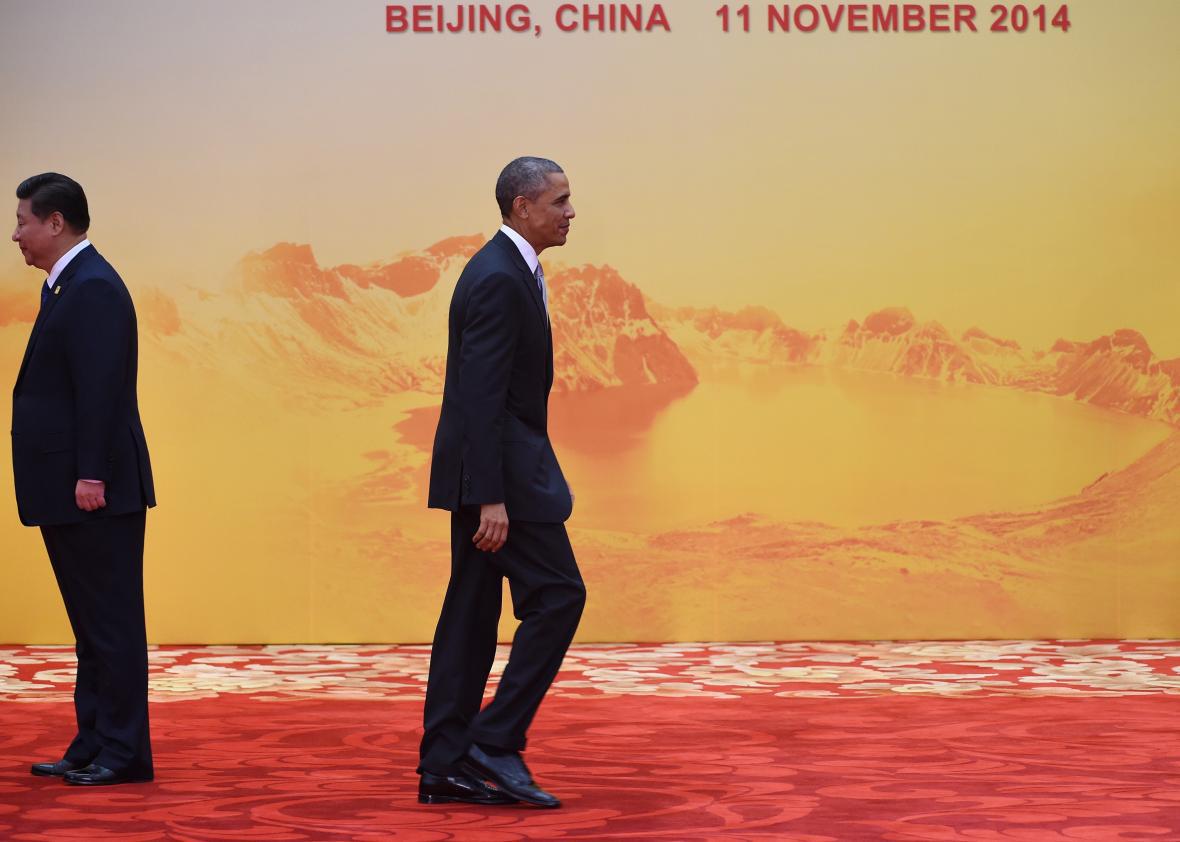Xi Jinping and Barack Obama will have a lot to talk about when the Chinese president makes his first state visit to Washington next week, which will take place between Xi’s tech-focused swing through Seattle and an appearance at the U.N. General Assembly in New York. Possible issues on the table for the two leaders include, but aren’t limited to, growing tensions over China’s claims in the South China Sea, growing animosity between China and U.S.-ally Japan, the nuclear truculence of China’s troublesome ally North Korea, U.S. accusations of Chinese cyberespionage, China’s own demands for the return of fugitive officials fleeing Xi’s corruption crackdown, action on carbon emissions ahead of key climate talks in December, and the highly uncertain state of the Chinese—and therefore the world’s—economy. Throw in human rights, the Trans-Pacific Partnership, concerns over terrorism, and the implementation of the Iran deal and you have more than any two leaders could ever hope to meaningfully cover between the pomp and photo ops of a state visit.
As if this wasn’t complicated enough, Obama is also contending with calls for his administration to get tough with China on a number of key issues. His administration is hinting that it is likely to do just that… just as soon as this state visit is over.
The Obama administration has vowed to retaliate for several major recent cases of Chinese economic cyberespionage against the U.S. But the Washington Post reports today that after an all-night meeting last Friday between U.S. and Chinese officials, the U.S. agreed not to impose any sanctions on Chinese individuals or businesses before Xi arrives in the United States on Sept. 24. Those sanctions, which according to the Post notes will target “companies [and individuals] in China that have benefited from the cybertheft of intellectual property from U.S. corporations” under the authority of an executive order signed in April, don’t appear to have been definitively ruled out, they just won’t be applied before the two leaders have a chance to sit down. The Chinese officials reportedly agreed, under the deal, to crack down harder on criminal hackers, though that will not address those who are allegedly working on the government’s behalf. Obama seemed a bit confounded on the question of how to respond to cyberattacks when speaking to troops at Fort Meade last week, admitting, “offense is moving a lot faster than defense.”
Tensions are also heating up in the South China Sea, despite China’s recent assurances that concerns over its island-building program are overblown. Recent satellite imagery appears to show China at work on a runway on Subi Reef in the disputed Spratly Islands, its third in the region and a major upgrade to its military capabilities. At a defense conference in London this week, a Chinese admiral reasserted China’s claim to the entire South China Sea, relying on the not particularly convincing argument that, after all, it has China in its name. The U.S. military had been pushing to assert its freedom of navigation in the region by sending ships or aircraft near the artificial islands claimed by China, arguing that a failure to do so would constitute an acceptance of China’s claims. But recently the Obama administration has been hesitant to make such moves out of concern over how China would react and, as one congressional staffer told Politico in July, “because it would be a bad news story ahead of the Xi visit in September.” (Beijing may not have gotten that memo judging by the Chinese naval ships that entered U.S. waters, coming just 12 miles over the Alaskan coast last month.)
Finally, after China’s recent moves to devalue its currency, a bipartisan group of senators is pushing the White House to do more to crack down on what it sees as currency manipulation by China. There’s a legitimate dispute over whether the yuan is actually still undervalued but never mind that nuance: GOP candidates have grabbed onto the issue with at least one, Scott Walker, calling for the state visit to be called off altogether because of it. Pressure from members of his own party, who want to tie the currency manipulation issue to the Trans-Pacific Partnership negotiations, may force Obama to make some sort of gesture on the issue, though again, not until Xi’s plane takes off.
China has made at least one conciliatory gesture ahead of the visit, releasing a scholar who helped activist Chen Guangcheng escape to the U.S. during Hillary Clinton’s visit three years ago. But overall, the vibe between the two countries is not exactly upbeat ahead of the visit and it’s hard to avoid the sense that next week’s festivities will be the calm before a storm of provocation and retaliation on several fronts.
